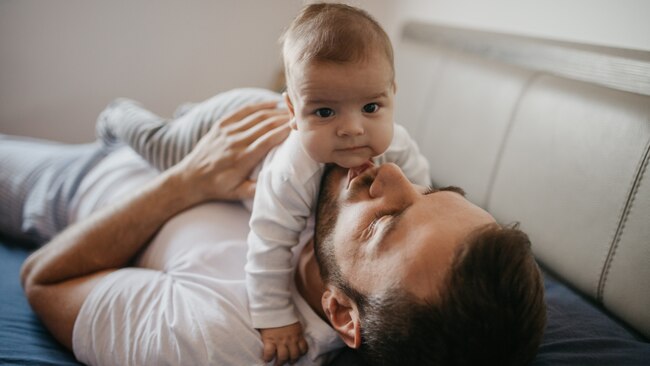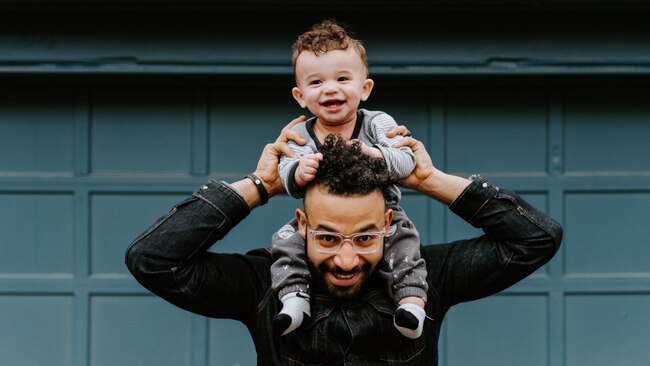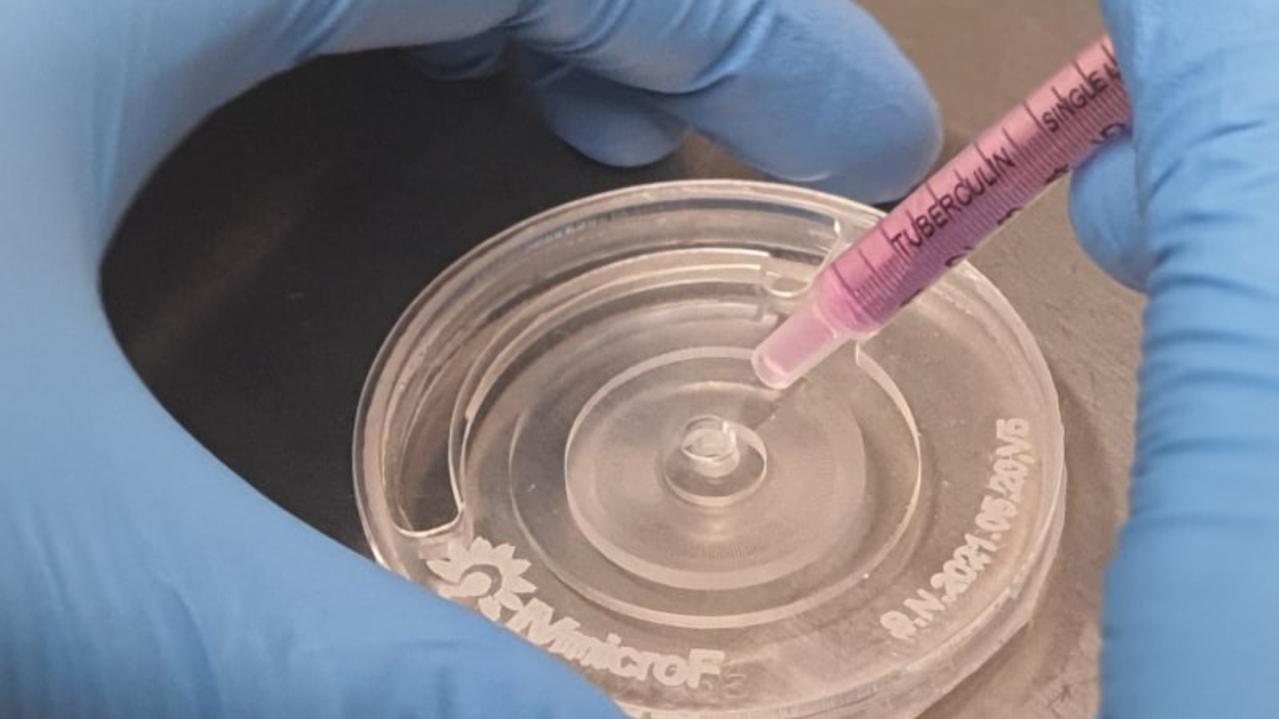Perinatal depression doesn't only affect new mums
Dads are at risk too

Pregnancy
Don't miss out on the headlines from Pregnancy. Followed categories will be added to My News.
This Men’s Health Week we’re raising awareness of perinatal depression, which is affecting an increasingly large number of new dads.
New research from Perinatal Anxiety and Depression Australia (PANDA) has revealed Australian dads are experiencing exceedingly high levels of perinatal depression – with numbers doubling in the 12 months leading up to December 2022.
According to NSW Health, perinatal depression is often called the 'baby blues', and refers to the time during and up to one year after pregnancy.
Symptoms include “feelings of extreme sadness, anxiety, and fatigue that may make it difficult for them to carry out daily tasks, including caring for themselves or others.”
Like what you see? Sign up to our bodyandsoul.com.au newsletter for more stories like this.
While postnatal depression is more commonly known, perinatal depression is particularly risky for women as in severe cases it puts both the mother and baby at risk.
However, it’s not just mums that suffer from perinatal depression, and as the new data from PANDA shows, men are increasingly suffering from feelings of depression and sadness around the birth of new babies.
As the stats now stand, one in 10 dads will develop symptoms of perinatal anxiety and/or depression during pregnancy or after a baby is born. The symptoms for men are both physical and emotional – with 85 per cent of PANDA respondents feeling worried and 70 per cent feeling sad or tearful.
There are many misconceptions about men experiencing perinatal depression. While they have not carried the child themselves, bringing a baby into the world involves a massive change for any parent, and feelings of expectation and responsibility can weigh heavily on their minds.
Feeling underprepared or inadequate is often a contributing factor for men, and other symptoms include feelings of isolation (87 per cent) and a lack of confidence in becoming a parent (67 per cent). Two thirds (61 per cent) of men’s anxiety results in them experiencing panic attacks.

Young dad Matt from Victoria experienced this first hand, and mental health struggles from his youth, and a recent ADHD and autism diagnosis, gave way to a lot of fear around becoming a parent.
“I was really scared to become a dad. But meeting the love of my life, and seeing her dreams of being a mother, along with her support and confidence in me encouraged me to want to become a dad,” he says.
“All three of my children’s births were traumatic for my wife and I, and my anxieties and fears of failure overwhelmed me after the births of my first two children. I was diagnosed with postnatal depression.”
While dealing with the overwhelm of anxiety and depression, Matt also never knew that men could experience perinatal depression – a set of challenges in its own right.
Fortunately, a strong support network and the opportunity to seek help from a therapist changed the course of Matt’s life.
“My wife was an absolute rock throughout it all and luckily we were able to find some light in the darkness in each other. We have always operated on the rule that together we will always be 100%. Even on days where I feel 20% she will be the other 80% for me and our family. This is one of the leading reasons we have a house so full of love today.”
“I started seeing a clinical psychologist through my employer. I had been in and out of therapy since I was a child and never had found a therapist I clicked with more than I did with this one.”

Fast forward to the present day and “after my ADHD and autism diagnoses, I’ve been able to mourn, grieve, heal, educate and find the right support,” says Matt. “I’m confident in saying I’m now on the other side and beginning to thrive as a neurodivergent father, husband and human.”
While it’s not as regularly spoken about, Matt says “It’s important for dads to know they are not alone and it’s normal to feel overwhelmed, anxious, and depressed at this time.”
While not every dad will experience it first-hand, it’s highly likely one of their friends or family members will, so education and awareness around how to provide support can make a huge difference in a loved one’s life.
When asked for his advice for other dads experiencing perinatal depression, Matt says “Most important of all, be kind to yourself. Take comfort in knowing you aren't alone and if you feel like you have no support, contact PANDA or any of the other incredible and necessary resources available to you.”
"Your room may be dark but there are plenty of others in there with you.”
If you or someone you love needs support:
- PANDA Helpline on 1300 726 306 (9am-7:30pm Monday-Saturday) or panda.org.au
- Lifeline: 13 11 14 (24/7) or lifeline.org.au
Originally published as Perinatal depression doesn't only affect new mums



